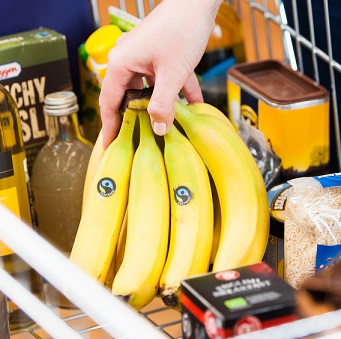Fairtrade Foundation applauds duty-free commitment for poorest countries post-Brexit

The British Government has promised to continue giving the world's poorest countries duty-free access to the U.K. after Brexit, in a move the Fairtrade Foundation claims will save farmers and workers from footing a £1 billion (US$1.3 billion) import tax bill. 
Under current EU arrangements, the U.K. offers duty free quota access to nations classed as the "Least Developed Countries" for all goods exported except arms and ammunition.
In the fruit export industry, the main countries of some relevance in this list include Bangladesh, Benin, Burkina Faso, Ethiopia, Haiti, Madagascar, Mali and Mozambique.
In a release last week, the government noted the EU currently offered a mix of tariff reductions for the next tier of developing countries, largely classed as lower middle income.
The announcement added the U.K. Government would also expand options to build on relationships with developing countries like Jamaica, Pakistan and Ghana - all of which currently benefit from a mixture of reduced or zero tariffs on the goods they export to the U.K. – as well as maintaining existing trading arrangements and avoiding costly tariffs.
"Our departure from the EU is an opportunity to step up to our commitments to the rest of the world, not step away from them," International Trade Secretary Liam Fox said in the release.
"Free and fair trade has been the greatest liberator of the world’s poor, and today’s announcement shows our commitment to helping developing countries grow their economies and reduce poverty through trade.
"Behind the ‘duty-free exports’ are countless stories of people in developing countries working hard to provide for themselves and their families by exporting everyday goods such as cocoa, bananas and roses, resulting in lower prices and greater choice for consumers."
International Development Secretary Priti Patel said the U.K. was using its position as a great, global trading nation to seize opportunities to lift countries out of grinding poverty.
"This will generate the wealth, prosperity and investment needed to create millions of jobs and help the world’s poorest people stand on their own two feet," she said.
"Helping developing countries harness the formidable power of trade means we are not only creating trading partners of the future for UK businesses, but supporting jobs at home too.
"Building a more prosperous world and supporting our own long-term economic security is firmly in all our interests."
Fairtrade Foundation's response
In an email, Fairtrade Foundation head of campaigns Jonathan Smith thanked all the petitioners who encouraged government officials to take this course of action.
"The campaign started with a 50,000-strong petition to the Prime Minister, followed by 5,000 emails to MPs and continued most recently with 38,000 Fairtrade, Traidcraft and Global Citizen supporters asking International Trade Minister Liam Fox to act fast on this issue," Smith said.
"And he has listened. Farmers and workers from 48 of the poorest countries around the world now know they will not face a future £1 billion import tax bill.

Representatives from the Fairtrade Foundation, Traidcraft and Global Citizen handing petitions to the Department for International Trade.
"Instead, they will be able to continue importing the produce we love into the UK duty- and quota-free."
But there are still some uncertainties around the announcement, which drew attention to some "next tier" countries in poverty but missed out on others.
"The campaign’s not over yet, though. There are poor countries not included in the announcement, such as Kenya, that need to know if they too can have improved terms of trade with the UK," he said.
"And there is still the chance that new trade deals with richer countries such as China, Australia and the US could push poorer ones out. It’s crucial that open and transparent negotiations take place to make sure this doesn’t happen."
The government release mentioned the banana trade as a case study in beneficial tariff arrangements with developing countries, although none of the nations mentioned are in the LDC list.
"The UK imports 6% of the world’s dried and fresh banana exports, and we eat around six billion bananas every year. Countries such as the Dominican Republic, Cote d’Ivoire, Cameroon and Ghana are an important source of this trade to the UK, contributing to 30% of total banana imports," the release said.
"DFID (Department for International Development) is a committed Fairtrade partner and is providing £18 million (US$23.4 million) over six years to help Fairtrade International have a greater impact in their work and make the global Fairtrade system stronger.
"The Fairtrade Foundation highlight that one in three bananas bought in the UK is Fairtrade. Fairtrade plays an important role in helping to improve the lives of poor people, such as by ensuring farmers receive fair prices for their products, workers receive better wages to help them support their families and agricultural practices are made more sustainable."
The government added the U.K. imported more than 105,000 metric tons (MT) of bananas from Sub-Saharan Africa in 2015 - a volume that has almost doubled since the start of the millennium for Sub-Saharan beneficiary economies.








































